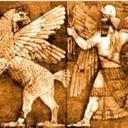Yahoo Answers is shutting down on May 4th, 2021 (Eastern Time) and beginning April 20th, 2021 (Eastern Time) the Yahoo Answers website will be in read-only mode. There will be no changes to other Yahoo properties or services, or your Yahoo account. You can find more information about the Yahoo Answers shutdown and how to download your data on this help page.
Trending News
My casio exilim ex-z29 camera broke, repair or buy a new camera?
it fell and the lens are now lopsided and wont go back in. i tried twisting the lens to go back but its no use. should i repair it or just buy a new camera? if so then what camera do u recommend? please help! i bought this camera from a friend, i don't know which cameras are worth buying.
5 Answers
- selina_555Lv 78 years agoFavorite Answer
No, repairing it is not economical.
As to "Which one is a good camera to buy?" - that gets asked many times every single day here on YA.
A quick search would have given you thousands of instant replies (without having to wait for answers), but once again here is my 10 cents on the subject:
I don't really like to give recommendations for particular cameras because there are too many choices and too many variables in what people are looking for. I find it much more useful to help you think this over, then make up your own mind.
Point & Shoot cameras are wonderfully handy because of their small size.
When light conditions are ideal, they even take really nice photos - all of them do.
However, they all DO have limitations - they don't do very well in low light situations (i.e. noisy photos, hard to avoid blur, etc). The little onboard flash is very harsh at close range, and doesn't reach very far.
Many of them have no manual functions, so you are limited to only very basic photos, you can't compensate for unusual situations, or do many fun "tricks" and special effects.
P&S's also suffer from frustrating shutterlag and many of them chew through batteries rather quickly.
If you're ok with all those limitations, then go ahead and pick one, most of them (the same type and same price range) are rather similar. Personally I would pick either a Canon or a Nikon, and would certainly stay away from Kodak and Vivitar.
A higher end P&S will give you more manual options and better quality. Many of those even give you the option of adding a proper flash (which makes a big difference to your flash photos).
Don't worry too much about megapixels - all modern cameras have plenty enough, plus there is a limit to how many pixels you can squash into a tiny P&S sensor before you actually LOSE quality rather than gain it. 6 megapixels is about the upper limit for those little sensors.
Don't worry about digital zoom, in fact, don't EVER use it. It simply crops away pixels, i.e. destroys information. The only real zoom is optical.
Some people ask for a camera that "doesn't take blurry photos". Blur is the photographer's problem, NOT the camera's. Even the most expensive camera will take blurry photos if the person behind it doesn't know what they're doing.
Some words about special effect features such as color accent, or even just b/w or sepia:
About applying any sort of effect in camera: DON'T DO IT !
Imagine if you just happen to take the best photo you ever took - surely you would want to have it in all its glory, right?
Always set your camera to biggest size, best quality (and to color).
That way, you start with the best possible photo as your original.
Then you make a copy and edit it to your heart's content.
You have much better control over any editing on your computer, even something as simple as b&w will look MUCH better when it was processed properly instead of in camera.
You can do all sorts of things to it PLUS you get to keep your original.
Decide which features are important to you, and look for cameras that have that feature.
Then go compare a few models on www.dpreview.com .
The very best thing you can do for your success is to borrow some books and learn about photography. A bit of knowledge will make a much bigger difference to your photos than your choice of P&S camera can.
For what it's worth - if I was in the market for a P&S camera right now, my choice would be a Canon Powershot SX50 HS http://www.usa.canon.com/cusa/consumer/products/ca...
If tiny size is attractive and important in your opinion (but you still want a camera that gives you some decent options), I'd suggest looking at cameras like the Canon Powershot SX210IS or perhaps the Panasonic Lumix DMC-TZ10. However, do keep in mind that small cameras have tiny sensors and tiny lenses, so don't ever expect miracles from any of them.
- MardukLv 78 years ago
I have a few cameras so it's not like I needed this one but I like it a lot for the money. It is a little slow and it isn't a 500 dollar camera but it takes great pictures in good light.
http://www.amazon.com/s/ref=nb_sb_ss_i_1_11?url=se...
Also it is reasonably priced. I've had cameras fall too and once it was another persons as I handed it to them we both let go and it fell, I felt bad but it happens. Repairing such a cheap (sorry) camera is not practical as it will cost more to fix than buy another. You also may want to look at Canon Powershots as they are good and some models are reasonably priced. A piece of advice, always wear the strap about your wrist. It is the first thing I do now so I won't drop it.
- stan lLv 78 years ago
Buy a new camera. No 4 year old 150 dollar point and shoot is worth fixing. Especially a Casio. If it worked correctly it MIGHT be worth 50 bucks if it wasn't a Casio. Buy a Canon SX150IS(if you can still find one on closeout sale at a hundred bucks).
- AndrewLv 78 years ago
Dropping these things is usually fatal.
For the cost of the repair, you could easily buy something better.
- How do you think about the answers? You can sign in to vote the answer.
- Anonymous5 years ago
if it is new then it should have a 30 day warranty on it i would try to take it back. just make shure they cant tell that something happen to it or something






